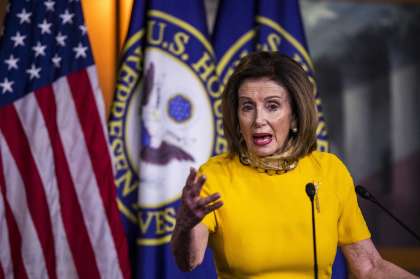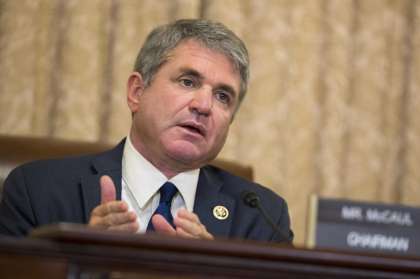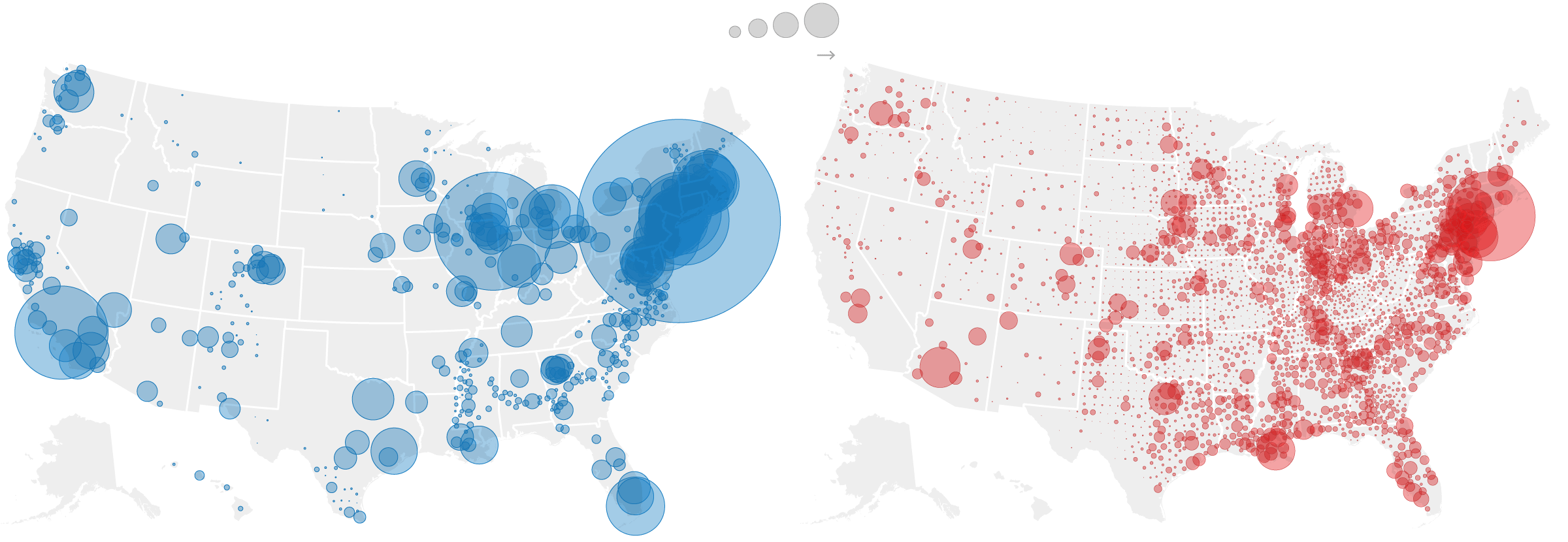Politics // Texas Politics
WASHINGTON — Texas is among the most politically polarized states in the U.S., and its congressional leaders are more partisan than those of any other populous state in the nation, according to a recent ranking.
Several Texas lawmakers rated among the most partisan in the nation, including U.S. Reps. Chip Roy, a Central Texas Republican who rated as the third-most partisan member of Congress, and U.S. Sen. Ted Cruz, whose record in the Senate is less partisan than those of just five other senators since 1993.
TEXAS TAKE: Get political headlines from across the state sent directly to your inbox
Researchers who participated in the study and Texas political experts agree that the skewed ratings reflect a generation of noncompetitive elections in the state — both for Democrats and Republicans. With most legislative districts drawn to be overwhelmingly Democratic or Republican, modern Texas politicians have had to worry only about appeasing voters in primary elections.
“Candidates have been electorally rewarded for going off the deep end, and ignoring the policy priorities of moderate general election voters — most voters — for almost 20 years,” said Harold Cook, a Texas political analyst who worked for years as a Democratic consultant.
The ratings also speak to how divided the nation is in the era of President Donald Trump, said Matt Mackowiak, a Republican strategist. While he said the Texas delegation has “generally pulled together with a Team Texas approach on major issues” such as hurricane relief, there’s generally “just very, very little incentive to work together.”
“The direction (House Speaker Nancy) Pelosi is leading the House is very different than the direction the White House wants to go, and there just are not a lot of incentives for crossing party lines to get things done,” he said.

‘TOO TIGHT TO TELL’: Trump, Biden in virtual tie in Texas in new poll
Nonetheless, the margins of victory have become tighter up and down the ballot since 2016, with as many as nine competitive congressional races expected this year, more than the state has seen in some time.
The rankings are based on support for bipartisan legislation in Congress, and the Texas delegation ranks 47th in the nation, ahead of only Rhode Island, Oklahoma and Alaska, according to researchers at Georgetown University and the nonprofit Lugar Center founded by former Republican U.S. Sen. Richard G. Lugar of Indiana.
The ratings reflect how frequently members co-sponsor bills introduced by those in the opposite party and how frequently members of the other party back their bills.
Bill sponsorship, the groups argue, is a “very carefully considered declarations of where a legislator stands on an issue,” whereas votes are often “contextual” and can influenced by circumstances.
Members are given a rating, with negative scores a sign of partisanship.
The Texas delegation was mostly in the negative, with only 11 of the 36 members of the House scoring above zero, as did U.S. Sen. John Cornyn.
‘BEHAVING LIKE BIGOTS’: Ted Cruz lashes out at Antifa protesters
At the top of the list for bipartisanship in Texas is U.S. Rep. Michael McCaul, a Republican whose district stretches from Houston to Austin, one that Democrats hope to flip in November.

“Whatever they’re going to say about me, the record is clear: I do work across the other side of the aisle,” McCaul said.
McCaul counted among his bipartisan victories legislation creating a federal cybersecurity agency, as well as bills targeting childhood cancer and human trafficking.
“The thing about Congress is so much of this is relationship-driven, and if you’re just up here to scorch the earth and throw your bombs out, you’re not really going to be effective,” McCaul said. “You might get on TV late at night, but that’s not really my goal up here.”
Others in districts expected to be battlegrounds also landed bipartisan scores, including U.S. Reps. Lizzie Fletcher, a freshman Houston Democrat who flipped a longtime Republican seat in 2018 that the GOP is hoping to take back this year, and Dan Crenshaw, a Houston Republican in a district targeted by Democrats.
On the other end of the spectrum, Roy recently scored a massive bipartisan win when the House passed a bill he co-sponsored to fix a popular paycheck protection program that did not help many small businesses. He said recently that he wants to see more of that type of work done in the House.
“If we want Congress to work again, we need to work,” Roy said. “We work best by letting the legislative process unfold. If you offer an idea and it gets voted down, well, move on.”
ben.wermund@chron.com
More Information
How Texas members of Congress scored on bipartisanship.
Positive ratings reflect a record of a member’s support for bipartisan legislation; negative ratings reflect partisanship.
Chip Roy, R-Austin: -1.4
Louie Gohmert, R-Tyler: -1.3
Michael Cloud, R-Victoria: -1.1
Veronica Escobar, D-El Paso: -0.9
Sylvia Garcia, D-Houston: -0.9
Mac Thornberry, R-Clarendon: -0.9
Randy Weber, R-Friendswood: -0.9
Kevin Brady, R-The Woodlands: -0.9
Kay Granger, R-Fort Worth: -0.9
Lance Gooden, R-Terrell: -0.8
Ron Wright, R-Arlington: -0.7
Jodey Arrington, R-Lubbock: -0.7
John Carter, R-Round Rock: -0.7
Al Green, D-Houston: -0.7
Bill Flores, R-Bryan: -0.7
Lloyd Doggett, D-San Antonio: -0.5
Mike Conaway, R-Midland: -0.5
Michael Burgess, R-Lewisville: -0.5
Sheila Jackson Lee, D-Houston: -0.3
Marc Veasey, D-Fort Worth: -0.2
Filemón Vela, D-Brownsville: -0.2
Brian Babin, R-Woodville: -0.1
Roger Williams, R-Austin: -0.1
Kenny Marchant, R-Coppell: -0.02
Joaquín Castro, D-San Antonio: 0.02
Dan Crenshaw, R-Houston: 0.2
Pete Olson, R-Sugar Land: 0.2
Lizzie Fletcher, D-Houston: 0.2
Colin Allred, D-Dallas: 0.3
Eddie Bernice Johnson, D-Dallas: 0.3
Vicente Gonzalez, D-McAllen: 0.7
Will Hurd, R-Helotes: 0.9
Van Taylor, R-Plano: 0.9
Henry Cuellar, D-Laredo: 1.1
Michael McCaul, R-Austin: 1.1
The senators:
John Cornyn: 1.1
Ted Cruz: -0.6
Read More


